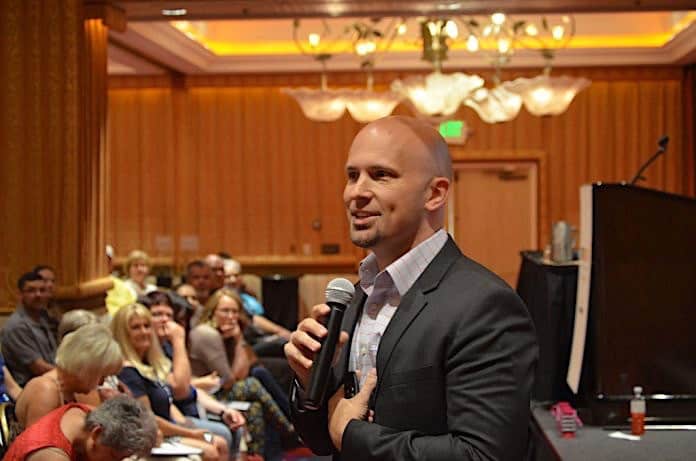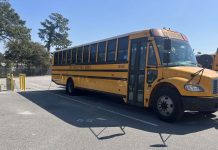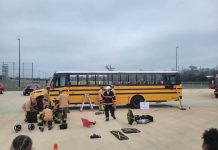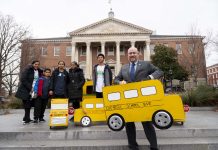RENO, Nev. — STN EXPO attendees received a message on the importance of proactively addressing potential on-board school bus student behavior challenges before they occur.
Presenter Patrick Mulick, the autism coordinator for Auburn School District in Washington state, led a lively discussion during his presentation “The Filter for Behavior on the Bus” during the STN EXPO last week. He noted that the school bus is the ultimate portable classroom.
While offering many suggestions to attendees, Mulick said school drivers should first and foremost foster positive relationships with students to develop rapport as well as expectations. Actions can include smiling, being welcoming and empathetic, knowing student names, maintaining eye contact, and speaking in a friendly and complimentary tone.
“Maintaining a positive rapport will help in dealing with behavioral challenges,” Mulick told an audience of over 150 student transporters.
It is important, said Mulick, to inform students of expectations. They should be positively stated, clearly posted and continuously reviewed with students to ensure they understand them. He advised student transporters to be certain to keep the expectation list to a manageable and memorable number, such as three to five rules. He recommended using visuals often so students understand the picture of what’s expected of them on the bus. Mulick said an engaged mind forgets to misbehave.
Despite frustrations with student behavior on the bus, Mulick said drivers must continue to clarify behavior, and they may need to take a step back emotionally and physically from situations.
Mulick said that the question to ask is, “Do the students have the tools to be successful?” Frequent reinforcement encourages success, he added, rather than using negative consequences, or punishment. Positive reinforcement offers a sense of accomplishment for the student and promotes natural reinforcement. This is accomplished by gaining social attention, getting praise from the driver, giving high-fives, and perhaps being designated as the rider of the week, Mulick added.
Drivers can use tangible items as positive reinforcement tools, such as certificates, snacks (when and where allowed), and school supplies. Mulick suggested the use of a token system, whereby good behavior is recognized by using a punch card or a ticket.
Mulick said getting into the child’s world is most important. Find out what the student is interested in and comment on it from time to time. Using an effective reinforcement system, Mulick suggested the “5 to 1” process. For every one behavior incident, he explained, celebrate with five instances of praise.
“Kids will follow along if they’re being celebrated,” Mulick continued.
Mulick said staff must also incorporate positivity when considering punishment. When fostering relationships with students, consider behavior management versus behavior support, he added.


















